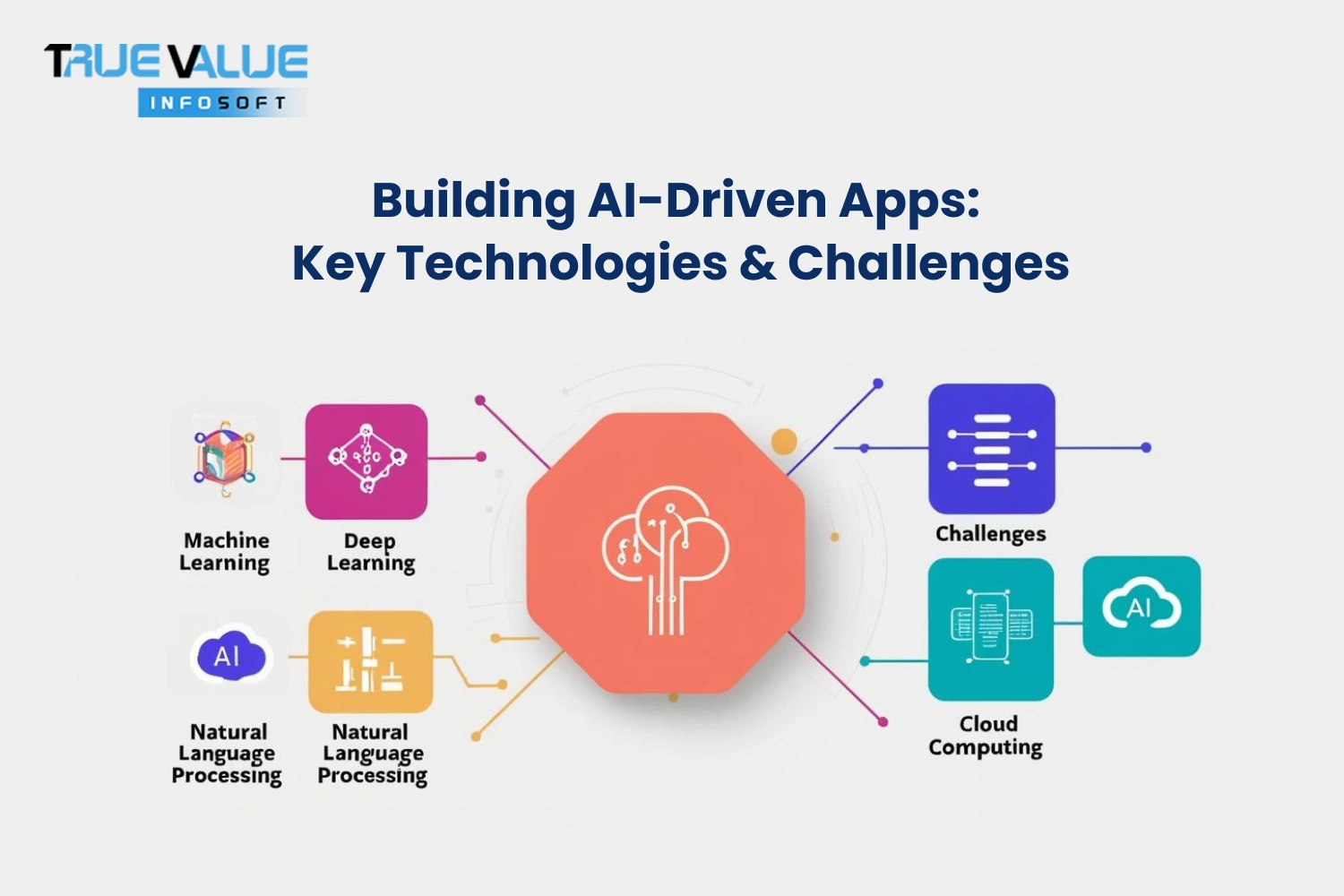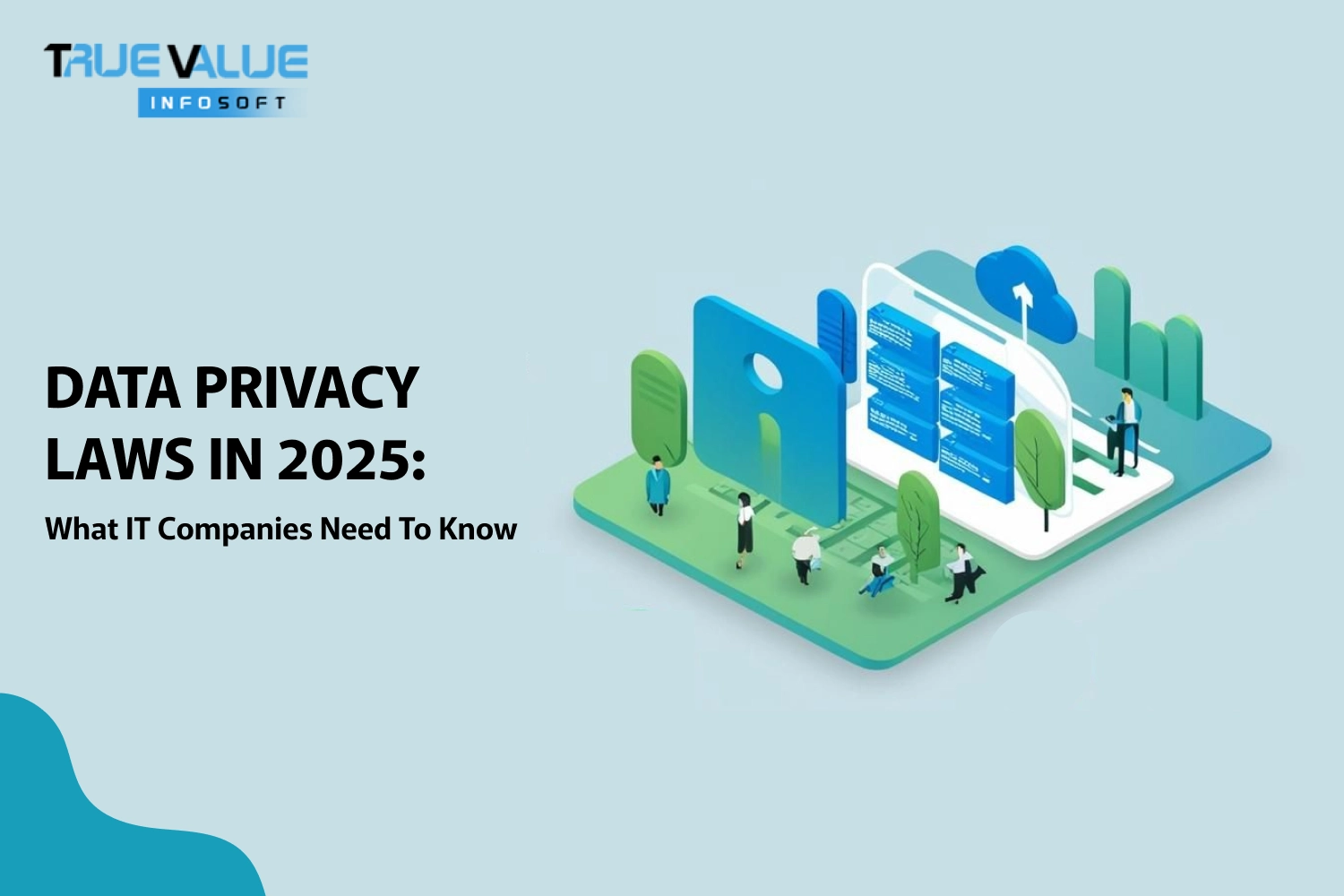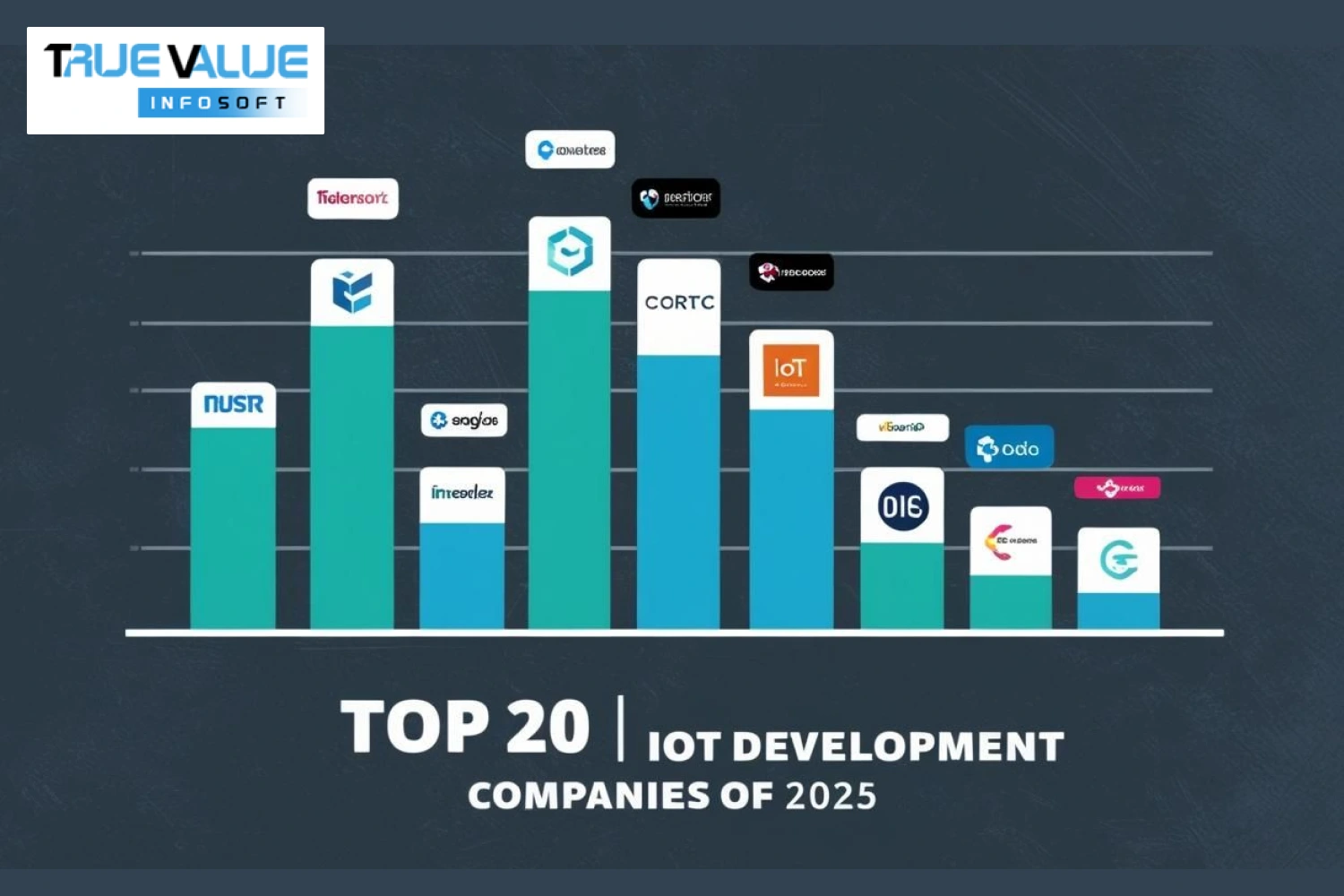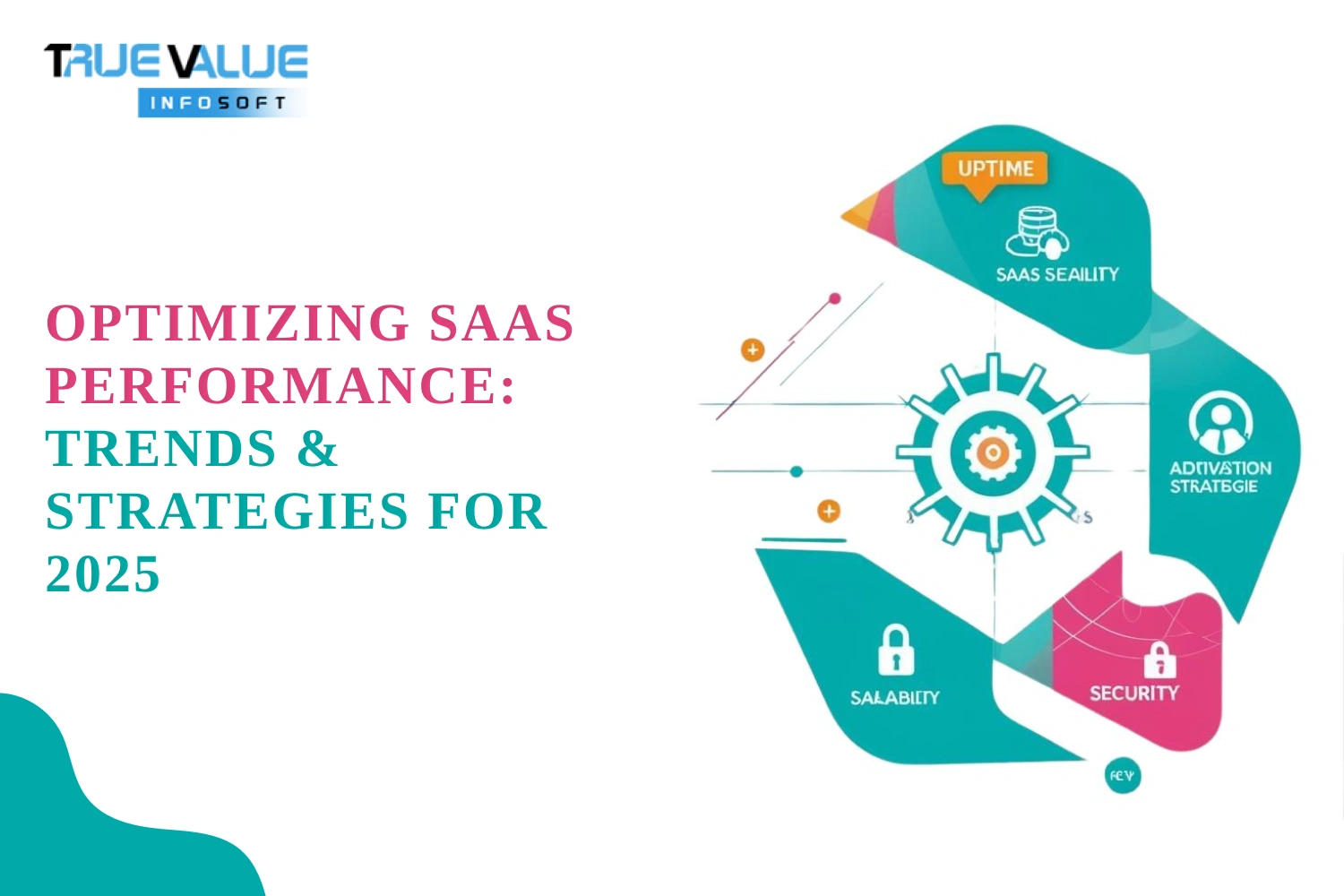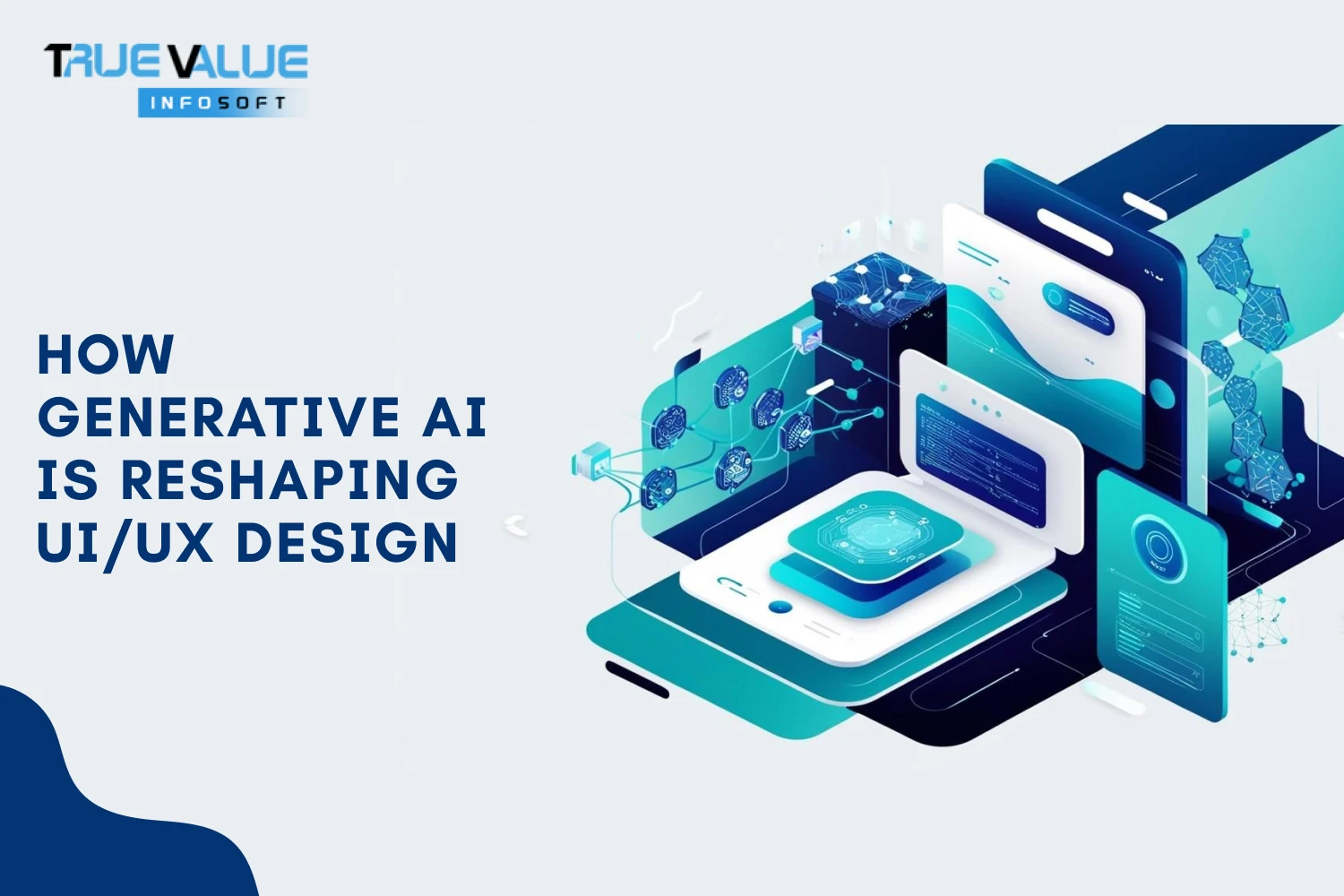Introduction
Have you ever wondered what truly sets today’s most successful apps apart from the rest? The answer lies in their ability to think, adapt, and personalize — all thanks to the power of Artificial Intelligence (AI). In a digital world where users demand smarter experiences, building AI-driven apps has become a necessity rather than a luxury. But creating such intelligent applications requires a deep understanding of emerging technologies and a strategic approach to overcoming unique challenges.
At True Value Infosoft, the best app development company in India, we specialize in transforming visionary ideas into powerful AI-driven solutions. Our expertise lies in integrating cutting-edge AI technologies like Machine Learning, Natural Language Processing, and Computer Vision to create apps that are not just functional but remarkably intuitive. As the demand for intelligent apps continues to skyrocket, businesses must understand the critical technologies involved and the hurdles they must cross to succeed in this new era.
What Are AI-Driven Apps?
AI-driven apps are applications that integrate Artificial Intelligence technologies to mimic human-like cognitive functions such as learning, reasoning, problem-solving, understanding natural language, and recognizing patterns. These apps can make decisions, automate tasks, and offer personalized experiences without explicit human instruction.
Examples of AI-driven apps include:
- Recommendation engines (Netflix, YouTube)
- Virtual assistants (Siri, Google Assistant)
- Chatbots (Drift, Intercom)
- Predictive analytics platforms (Salesforce Einstein)
- Image and speech recognition apps (Google Photos, Otter.ai)
Why Build AI-Driven Apps?
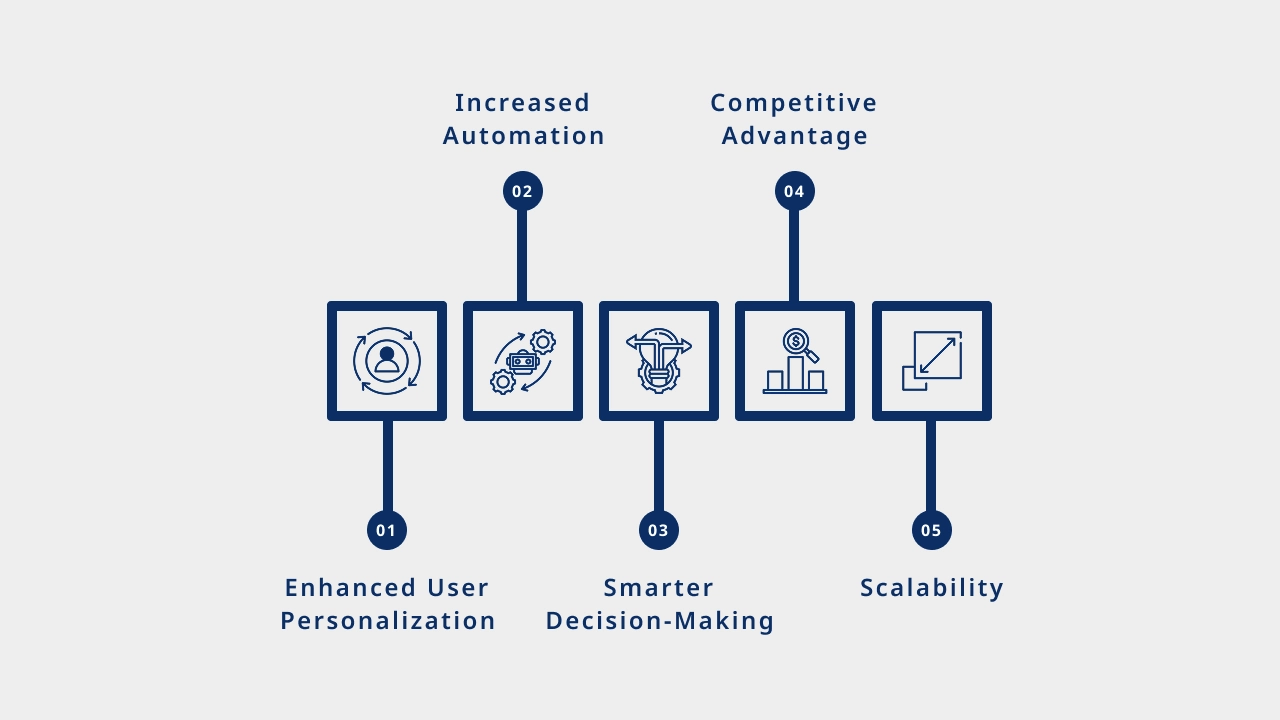
1. Enhanced User Personalization:
AI tailors content, suggestions, and interfaces based on user behavior, leading to a richer and more engaging user experience.
2. Increased Automation:
AI can automate repetitive tasks, reducing operational costs and improving efficiency.
3. Smarter Decision-Making:
Data-driven insights powered by AI models can inform better business and product decisions.
4. Competitive Advantage:
Companies that adopt AI technologies early often outperform competitors who are slower to innovate.
5. Scalability:
AI systems can handle an increasing number of users without a linear increase in cost or resources.
Key Technologies Behind AI-Driven Apps
Creating AI-driven apps requires an intricate web of technologies. Let’s break them down:
1. Machine Learning (ML)
Machine Learning is at the heart of AI applications. ML models learn from data, identify patterns, and make decisions without being explicitly programmed.
Popular ML Libraries:
- TensorFlow
- PyTorch
- Scikit-learn
- XGBoost
Use Cases:
- Product recommendations
- Fraud detection
- Predictive analytics
2. Natural Language Processing (NLP)
NLP enables apps to understand, interpret, and generate human language.
Popular NLP Technologies:
- OpenAI's GPT models
- Google's BERT
- Hugging Face Transformers
- spaCy
Use Cases:
- Chatbots
- Sentiment analysis
- Voice-enabled apps
3. Computer Vision
Computer Vision empowers apps to interpret and act on visual data such as images and videos.
Popular Computer Vision Tools:
- OpenCV
- TensorFlow Object Detection API
- YOLO (You Only Look Once)
- AWS Rekognition
Use Cases:
- Facial recognition
- Image tagging
- Visual search
4. Deep Learning
Deep Learning is a subset of ML using neural networks with many layers (deep neural networks) to model complex patterns.
Frameworks:
- Keras
- TensorFlow
- PyTorch
Use Cases:
- Speech recognition
- Image generation
- Language translation
5. Reinforcement Learning
This type of learning is about agents taking actions in an environment to maximize rewards.
Frameworks:
- OpenAI Gym
- Stable Baselines
Use Cases:
- Game AI
- Dynamic pricing
- Robotics control
6. Edge AI
Edge AI runs AI algorithms locally on devices, reducing latency and dependency on cloud servers.
Technologies:
- TensorFlow Lite
- NVIDIA Jetson
- Edge TPU (Google Coral)
Use Cases:
- Smart cameras
- Real-time analytics on mobile devices
- IoT sensors
7. Big Data Technologies
AI apps require processing massive volumes of data.
Popular Big Data Tools:
- Apache Hadoop
- Apache Spark
- MongoDB
- Google BigQuery
Use Cases:
- Data preprocessing
- Feature engineering
- Model training
Key Steps in Building an AI-Driven App
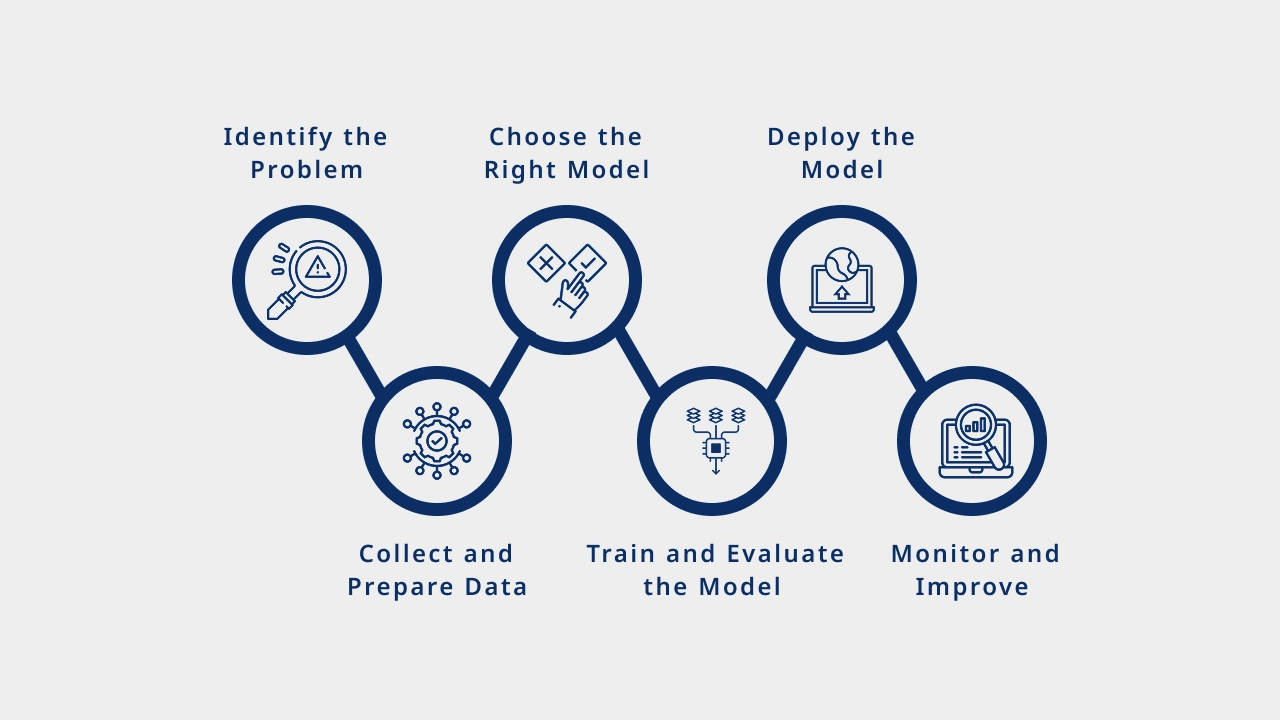
Building an AI app isn't simply "adding AI" to an existing app. It’s an end-to-end process:
1. Identify the Problem
Determine what user problem or business need the app will solve with AI.
Questions to ask:
- What task can AI automate or optimize?
- Is AI truly necessary for this feature?
2. Collect and Prepare Data
Data is the fuel for AI. Without quality data, even the best algorithms will fail.
Data Preparation Involves:
- Data cleaning
- Data labeling
- Feature extraction
- Data augmentation (for small datasets)
3. Choose the Right Model
Select an AI model architecture based on your problem type:
Data Preparation Involves:
- Classification
- Regression
- Clustering
- Recommendation
- Translation
- Generation
4. Train and Evaluate the Model
Training involves feeding the model with labeled data and adjusting weights to minimize error.
Evaluation Metrics:
- Accuracy
- Precision & Recall
- F1 Score
- Mean Absolute Error (MAE)
5. Deploy the Model
Deployment options:
- On-cloud (AWS, Azure, Google Cloud)
- On-premises
- On-device (Edge AI)
6. Monitor and Improve
Once deployed, monitor model performance and user behavior. Retrain models with fresh data to prevent model drift.
Major Challenges in Building AI-Driven Apps
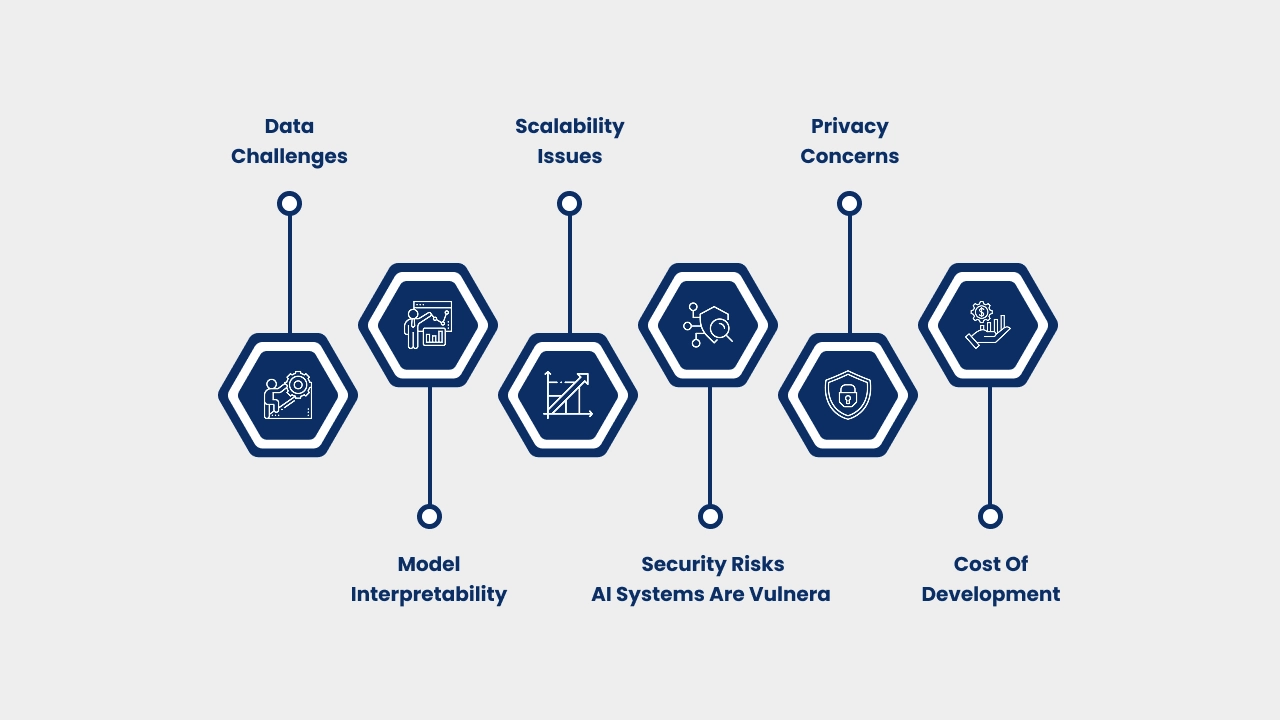
Despite the exciting potential, building AI apps isn't without hurdles.
1. Data Challenges
Issues:
- Data scarcity
- Poor data quality
- Bias in data
- High costs of labeled data
Solutions:
- Synthetic data generation
- Crowdsourcing data labeling
- Using pre-trained models
2. Model Interpretability
Many powerful AI models (like deep learning) are black boxes, making it hard to explain why they make certain decisions.
Solutions:
- LIME (Local Interpretable Model-agnostic Explanations)
- SHAP (SHapley Additive exPlanations)
3. Scalability Issues
Training and deploying large models requires enormous computational resources.
Solutions:
- Model compression (pruning, quantization)
- Efficient architectures (like MobileNet)
- Cloud-based training and inference
4. Security Risks
AI systems are vulnerable to adversarial attacks — small manipulations in input data can fool models.
Solutions:
- Adversarial training
- Input validation
- Defensive distillation
5. Privacy Concerns
Training on sensitive user data can lead to privacy violations.
Solutions:
- Differential privacy
- Federated learning (training on devices without sharing data)
6. Cost of Development
Building and maintaining AI systems can be expensive.
Solutions:
- Leveraging open-source frameworks
- Using pre-trained models
- Choosing cloud AI services (AWS Sagemaker, Azure ML)
Best Practices for Building AI Apps
- Start Small: Pilot with a small feature before scaling AI across the app.
- Focus on Data: Spend at least 60% of your time on data collection and cleaning.
- Use Pre-trained Models: Save time by fine-tuning existing models.
- Ensure Ethics and Fairness: Regularly audit models for bias and fairness.
- Optimize for Deployment: Build lightweight models if targeting mobile or embedded systems.
- Build Feedback Loops: Allow the app to continuously learn and improve post-launch.
Future Trends in AI App Development
- Multimodal AI: Apps combining text, images, audio, and video understanding.
- Explainable AI (XAI): Increasing demand for AI models that can explain their decisions clearly.
- Generative AI: Explosion of AI systems that can create content (like ChatGPT, MidJourney).
- AI for Sustainability: Using AI to optimize energy, reduce waste, and promote green tech.
- No-Code/Low-Code AI: Platforms that allow non-developers to build AI models visually.
Case Studies: Successful AI-Driven Apps
- Netflix: Uses AI for recommendation, video encoding, content personalization.
- Spotify: Personalized playlists (Discover Weekly) driven by ML algorithms.
- Tesla: Autonomous driving features built on deep learning and computer vision.
- Duolingo: Adaptive learning paths based on reinforcement learning.
Why True Value Infosoft is the Best App Development Company in India
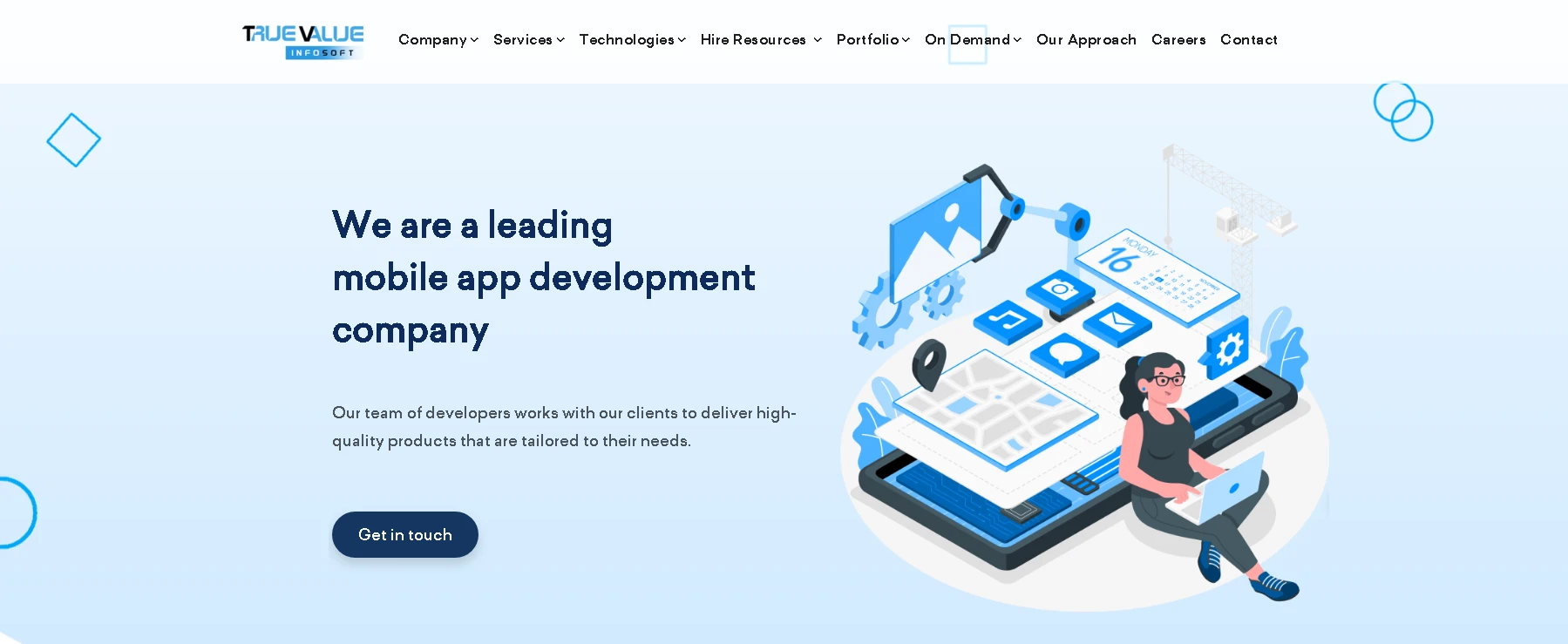
When it comes to building innovative, high-performance mobile and web applications, True Value Infosoft stands out as the best app development company in India. With over a decade of industry experience, we have earned a reputation for delivering cutting-edge solutions tailored to meet the unique needs of businesses across the globe. Our team of expert developers, designers, and AI specialists is committed to crafting apps that are not only visually stunning but also powerful, scalable, and future-ready.
- Proven Expertise: With over a decade of experience, True Value Infosoft has successfully delivered hundreds of innovative apps across diverse industries.
- Cutting-Edge Technologies: We integrate the latest advancements like AI, Machine Learning, Blockchain, IoT, and Cloud Computing to build future-ready applications.
- Skilled Team: Our talented team of developers, designers, and project managers bring deep technical knowledge, creativity, and a passion for excellence.
- Client-Centric Approach: Every project is built around the client’s vision, ensuring customized solutions that meet business goals and user expectations.
- End-to-End Solutions: From ideation and UI/UX design to development, deployment, and post-launch support, we offer comprehensive app development services.
- Transparent Communication: We believe in complete transparency, providing regular updates, clear timelines, and dedicated support throughout the project.
- Global Recognition: Trusted by startups, enterprises, and Fortune 500 companies worldwide, True Value Infosoft has a strong global presence.
- Affordable Pricing: We deliver premium quality solutions at competitive prices, maximizing ROI for our clients.
Choose True Value Infosoft — where innovation meets excellence!
Conclusion
AI-driven apps represent the next evolution of digital experiences. By integrating AI technologies like Machine Learning, NLP, Computer Vision, and Reinforcement Learning, developers can create apps that are smarter, more efficient, and more user-centric.
However, building AI apps isn’t without its challenges. From data management issues to deployment complexities, every stage needs careful planning and execution. By understanding the key technologies, anticipating the challenges, and applying best practices, you can harness the full power of AI to create transformative applications.
The future belongs to intelligent apps — are you ready to build one?
FAQs
The cost can range from $30,000 to $300,000+, depending on app complexity, data requirements, and AI model sophistication.
Typically, it takes 6 to 12 months, including research, data preparation, model development, and testing.
Python is the most popular language due to its extensive libraries, but Java, R, and C++ are also widely used.
Yes! Thanks to cloud AI services and pre-trained models, even startups can integrate AI affordably.
Audit your AI models regularly for bias, respect user privacy, and ensure transparency in how AI decisions are made.
